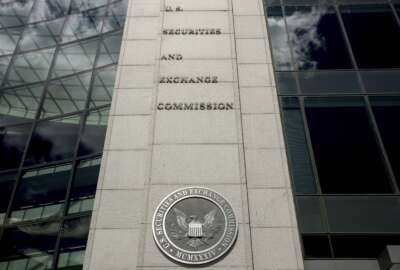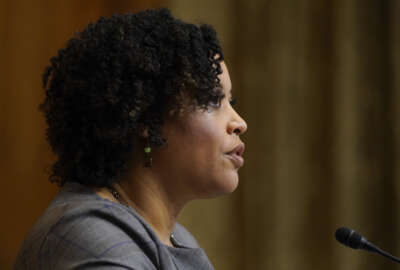

The U.S. isn't quite out of Afghanistan. There's a lot of oversight left to do, which might provide be the biggest lessons learned
Consider the United States withdrawal from Afghanistan. If you thought the U.S. was done with that country, think again. I was brought up-to-date by the Special Inspector General for Afghanistan Reconstruction, John Sopko.
Although the SIGAR office has shrunk, it still has a lot of work to do. Sopko, in my interview on the Federal Drive, named three buckets of oversight. One is clearing out reports underway before the withdrawal last August. He acknowledged the billions and billions of U.S. treasure spent in Afghanistan is sunk. The government, including the Afghan military, started crumbling into sand before the last C-17’s tires left the ground.
But Sopko argues that if the U.S. is going to be engaged around the world, the lessons learned from Afghanistan reconstruction — if that’s the right word — will remain relevant. If only to remind future architects of intervention how not to do things.
A second area for SIGAR comes from members of Congress. They’re asking the IG to come back with answers on questions for which there are still no adequate answers. Like, why did the Afghan government collapse so fast? What happened to the left-behind U.S. weapons? What happened to the Afghan friends and supporters of the U.S. enterprise who didn’t make it out?
SIGAR’s third post-withdrawal assignment is to try and oversee — or get other agencies like the State Department to oversee — the billions in humanitarian aid that’s supposed to flow into Afghanistan. The U.N. has pledged money, and the U.S. foots one in five of those dollars. There is also U.S. money, $308 million of it, going in via the U.S. Agency for International Development.
Sopko practically bangs on the desk in urging oversight. The oversight mechanisms must be in place before the money, he says.
“That’s the warning we are sending to the World Bank, the U.N., the Congress, the administration, ” Sopko said. “Do oversight. Don’t forget oversight.”
He complained of hearing a 90-minute Afghanistan presentation by a State Department official, speaking at the U.S. Institute of Peace.
“And not one word, not one word was said [about] how we are going to protect the billions of dollars we are sending over to Aghanistan,” Sopko said.
Even if oversight is only a paper chase, it’s worth doing, Sopko added. U.S. officials can’t set foot in Afghanistan. Getting money to impoverished individuals without some of it being intercepted or extorted by the Taliban presents a long shot. But if the Taliban know the money is under watch, that can provide more leverage than simply dropping pallets of cash, as Sopko said the government is now doing.
It’s a drearily repeated problem. The trillions appropriated for the pandemic, at great cost to the national balance sheet, generated a lot of talk about oversight and accountability. But the money went out way faster than agencies could crank up oversight and accountability functions. So now it’s discover-and-weep.
This passage from a recent Small Business Administration’s IG report on the economic injury disaster loans (EIDL) program is typical:
“Using SBA’s data, we found SBA provided $4.5 billion more in Emergency EIDL grants to sole proprietors and independent contractors than they were entitled to receive based on established policy.” The IG found more than a half million sole proprietors, all receiving at least $1,000 grants, “applied for the Emergency EIDL grants without an Employer Identification Numbers and claimed more than one employee on their applications.”
That’s not good. But I think Sopko’s point is, agencies should not wait until the IG or the Government Accountability Office finds things out.
The IG added that SBA staff “disagreed with the prior administration’s policy determination, which is the criteria used to premise our findings.” That’s another matter, but SBA is nevertheless taking corrective action.
I don’t mean to pick on the SBA. Every agency has had oversight lapses. Between them, the IG collective and the GAO have published thousands of reports about oversight lapses over the decades. The National Academy of Public Administration late last year published a study of an entire enterprise, the U.S. Merchant Marine Academy. NAPA’s theme: The academy drifted way off course over the years thanks in part to no one paying enough attention.
In three weeks, presuming Congress gets its omnibus bill done, the government will start fiscal 2022. Even if that occurs six months late, it’s not a bad time to recommit to good oversight.
Copyright © 2024 Federal News Network. All rights reserved. This website is not intended for users located within the European Economic Area.
Tom Temin is host of the Federal Drive and has been providing insight on federal technology and management issues for more than 30 years.
Follow @tteminWFED



